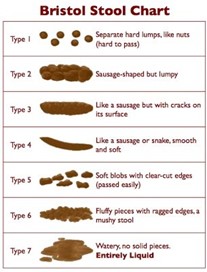A client recovering from surgery asks the nurse why turning, deep breathing, and coughing exercises need to be done. How should the nurse respond?
"These exercises prevent thrombophlebitis."
"The doctor ordered the exercises."
"These exercises help prevent pneumonia."
"All surgical clients must do these exercises."
The correct answer and explanation is:
The Correct Answer is C
Turning, deep breathing, and coughing exercises are important for clients recovering from surgery as they help prevent the development of pneumonia. After surgery, clients may have difficulty taking deep breaths and coughing due to pain or discomfort. This can lead to the accumulation of mucus in the lungs, increasing the risk of pneumonia. By performing these exercises, clients can help clear their lungs and reduce their risk of developing this complication. While these exercises may also help prevent other complications such as thrombophlebitis, the primary reason for performing them is to prevent pneumonia.

Nursing Test Bank
Naxlex Comprehensive Predictor Exams
Related Questions
Correct Answer is A
Explanation
The nurse should instruct the client to include more whole grains in their diet and drink more water daily to improve their inconsistent fecal elimination pattern. Whole grains are high in fiber which can help regulate bowel movements and drinking more water can help keep stools soft and easy to pass ¹. Using enemas as desired is not a recommended solution for long-term management of inconsistent fecal elimination patterns. It is important for the client to consult with their healthcare provider for personalized advice and treatment options.

Correct Answer is ["A","D"]
Explanation
A test to determine the amount of residual urine is used to measure the amount of urine that remains in the bladder after voiding. This assessment can be used for several reasons, including to determine the need for medications that can help improve bladder emptying and to evaluate the amount of retained urine after voiding. Retained urine can increase the risk of urinary tract infections and other complications. This test is not typically used to evaluate fluid volume status, glomerular filtration rate, or the extent of renal failure.

Whether you are a student looking to ace your exams or a practicing nurse seeking to enhance your expertise , our nursing education contents will empower you with the confidence and competence to make a difference in the lives of patients and become a respected leader in the healthcare field.
Visit Naxlex, invest in your future and unlock endless possibilities with our unparalleled nursing education contents today
Report Wrong Answer on the Current Question
Do you disagree with the answer? If yes, what is your expected answer? Explain.
Kindly be descriptive with the issue you are facing.
